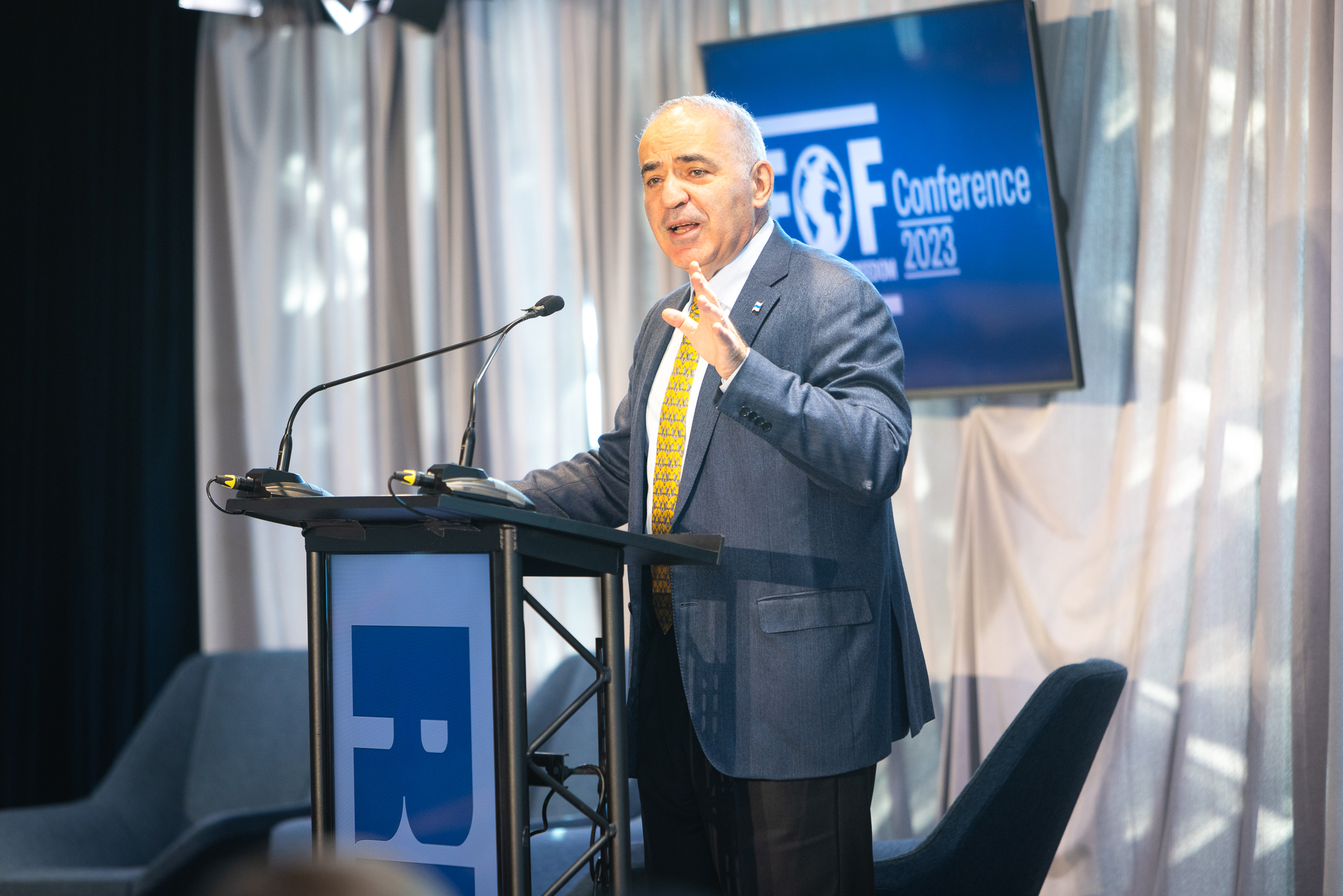What dissidents want you to know about the fight for their lives
Dissidents living in the U.S. share their stories to raise awareness about how the fight for freedom around the world begins here

- Pictured Garry Kasporov
Key Takeaways:
- Dissidents taking refuge in free countries no longer have the same guarantee of safety that they use to.
- More than 850 acts of transnational repression have occurred since 2014, yet there is a lack of legislation and awareness around the issue.
- Dissidents living in the U.S. seek additional legal protections.
Masih Alinejad and Enes Freedom high-fived when they realized they both have “panic buttons” from the FBI. They can press the devices any time they feel threatened, and agents will be dispatched to them within minutes.
Alinejad and Freedom are two dissidents living in the United States who still feel the reach of their authoritarian countries. Sometimes, all they can do is laugh about the reality of what it’s like living in danger due to their fights for freedom and democracy. Yet nothing about it is funny.
Earlier this year, four men were indicted for the attempted assassination of Alinejad, a journalist and activist from Iran, who has spent her career speaking out against the Islamic Republic. Alinejad has lived in 11 safe houses and has been urged by the U.S. government to go into the Witness Protection Program. She refuses.
Freedom, a former NBA player and activist, has a similar story. He currently has a bounty on his head in Turkey after critiquing the country’s corrupt government. He has not played in the NBA since the 2021-22 season, which he says is because he spoke out against China’s human rights violations. The NBA currently makes around $5 billion a year from its partnership with China.
Alinejad and Freedom were among several dissidents to speak about their experiences at an event hosted by the Renew Democracy Initiative at the Johns Hopkins University Bloomberg Center on transnational repression, when governments threaten dissidents living in other countries. Johns Hopkins University’s SNF Agora Institute was among the event’s sponsors.
There have been more than 850 direct, physical incidents of transnational repression by 38 governments in 91 countries since 2014, according to Freedom House’s report on transnational repression. These incidents include assassinations—or attempts like Alinejad’s—unlawful deportations, detentions, and physical and digital threats toward dissidents and their families. One of the most well-known incidents was the 2018 murder of Saudi Arabian journalist Jamal Khashoggi by Saudi agents in Turkey.
There are currently no U.S. laws that specifically criminalize transnational repression, according to a recent report by the Government Accountability Office (GAO), and it’s been difficult to track specific incidents against U.S.-based dissidents due to lack of awareness about the issue among U.S. officials.
There are some existing laws that provide a loophole to penalize foreign governments that commit acts of transnational repression. For example, Section 6 of the Arms Export Control Act of 1976 prohibits arms transfers to countries that have intimidated or harassed individuals in the U.S.
But the speakers at the Renew Democracy Initiative event say there is more work to be done. The GAO recommends strengthening the Arms Export Control Act, for example.
Many of the dissidents presenting hit on a common theme: For Americans, the struggle for rights is an abstract idea. It’s something that’s often taken for granted because most haven’t had to fight for freedom of speech or democracy. But the dissidents urged policymakers—and all U.S. citizens—to recognize that threats to freedom for them are threats for us all.
“We need legislation and collective action to guarantee protection of free speech in this country, and for the dissidents in our country,” said Garry Kasparov, Russian political activist and chairman of the Renew Democracy Initiative. “The global fight for democracy starts at home.”